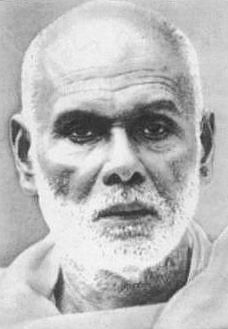This article has multiple issues. Please help improve it or discuss these issues on the talk page. (Learn how and when to remove these messages)
|
Ayyathan Gopalan | |
|---|---|
 | |
| Born | Ayyathan Gopalan 3 March 1861 |
| Died | 2 May 1948 (aged 87) Calicut Shanthi Ashram, Malabar District, Province of Madras, Dominion of India (present day Kozhikode, Kerala, India) |
| Resting place | Santhi Gardens (Ayyathan family cemetery, Calicut) |
| Other names | Darsarji, Darsar Sahib |
| Alma mater | Madras Medical College |
| Occupations |
|
| Notable work | Bhramodarma Malayalam (the Bible of Brahmo Samaj) Saranjiniparinayam Susheeladukham (musical dramas) |
| Movement | Sugunavardhini movement (1900), Depressed classes mission (1909) |
| Spouse |
Kallat Kausallya Ammal
(m. 1878–1930) |
| Children | 5 |
| Relatives | Ayyathan Janaki Ammal (sister) |
| Awards | Rao Sahib |
| This article is part of a series on |
| Reformation in Kerala |
|---|
 |
| Background |
| Notable people |
|
| Others |
Rao Sahib Ayyathan Gopalan (3 March 1861 – 2 May 1948), popularly known as Darsarji and Darsar Sahib ("Darsar" means "doctor", derived from Latin word "docere" for doctor), was an Indian doctor, surgeon, professor, writer, philanthropist, social reformer, and Renaissance leader from Kerala. He is the founder of the Sugunavardhini movement (1900) and Depressed classes mission (1909) and also the leader and propagandist of Brahmo Samaj (1893) in Kerala.[1] He denounced idol worship and fought to end those social practices in Kerala that he thought were unethical. Among his followers were Brahmananda Swami Sivayogi,[2][3][4][5][6][7][8] Vaghbatananda,[9][10][11][12][13] and Brahmavadhi P. Kunhiraman. Gopalan titled P. Kunhiraman as "Brahmavadhi" and Sivayogi as "Brahmananda Swami".
He was awarded and honoured by the British government with the highest civilian award and title, the "Rao Sahib",[14][15][16][17][18][19] for his services. The formation of the Sugunavardhini movement, Depressed classes mission and Brahmosamaj played a significant role in the Kerala reformation movement.
- ^ Bose, Ram Chandra. (1884). Brahmoism; or, History of reformed Hinduism from its origin in 1830,. Funk & Wagnalls. OCLC 1032604831.
- ^ Biography of Brahmananda swami Sivayogy by A K Nair.
- ^ Brahmananda Swami Sivayogi by Pavanan.
- ^ Biography of Brahmanada Sivayogi written by K Bheeman Nair "Asathyathil ninnu sathyathilekku"(അസത്യത്തിൽ നിന്ന് സത്യത്തിലേക്ക്).
- ^ Brahmananda Swami Sivayogi and His Selected Works by P.V. Gopalakrishnan.
- ^ "sivayogi". 29 April 2013. Archived from the original on 22 March 2015. Retrieved 10 September 2019.
- ^ Kerala Navothanam - Oru Marxist Veekshanam - P. Govindappilla (Chintha Publishers, Thiruvananthapuram-695001).
- ^ Gopalakrishnan, P. V. (2002). Brahmananda Swami Sivayogi and his selected works. Kalpaz Publications. ISBN 8178351013. OCLC 52726748.
- ^ Kurup, K. K. N. (1988), Modern Kerala: Studies in Social and Agrarian Relations. Mittal Publications. 1988. ISBN 9788170990949.
- ^ Shepherds' Chalet, Shepherds' Chalet, Shepherdschalet.com, retrieved 19 March 2014.
- ^ Kurup, K. K. N. (1988). "Kurup, K. K. N. (September 1988). "Peasantry and the Anti-Imperialist Struggles in Kerala"". Social Scientist. 16 (9): 35–45. doi:10.2307/3517171. JSTOR 3517171.
- ^ "Vagbhatananda". Archived from the original on 27 September 2019. Retrieved 10 September 2019.
- ^ Brahmavrathan, Swami. (1971). Maharṣi Vāgbaṭānanda Gurudēvar. OCLC 978079481.
- ^ Cite error: The named reference
:0was invoked but never defined (see the help page). - ^ Cite error: The named reference
:1was invoked but never defined (see the help page). - ^ Cite error: The named reference
:2was invoked but never defined (see the help page). - ^ Cite error: The named reference
:3was invoked but never defined (see the help page). - ^ Cite error: The named reference
:4was invoked but never defined (see the help page). - ^ Cite error: The named reference
:5was invoked but never defined (see the help page).
